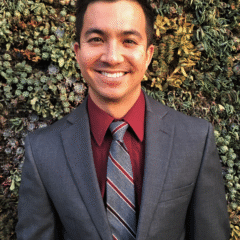Programming Your Irrigation Timer
About This Course
Learn the basics of working with irrigation timers, both manual and weather-based. Join irrigation expert Jacob Shiba as he explains key terminology and programming basics and then walks you through the steps needed to make sure your plants are getting the right amount of water they need.
Other classes you might be interested in:
How Much Water Does Your Garden Need?
This class is also a pre-requisite for the Professional workshop on Advanced Irrigation Scheduling.
Learning Objectives
Material Includes
- Video
- Certificate of Completion
Target Audience
- Anyone wanting to get better acquainted with their manual or weather-based "smart" irrigation controller
- Professionals need this course as a prerequisite to the Advanced Irrigation Scheduling workshop
Curriculum
Deciphering Your Controller Video
Programming Your Irrigation Timer44:53
Certificate of Completion
Your Instructors
Jacob Shiba
G3 Certified Instructor
Jacob Shiba is an Assistant Professor of Water Technology at Palomar College in California teaching a variety of classes in Water Technology, Water Distribution, and Water Conservation. He was also a Community Affairs Specialist planning various water education programs and coordinating public outreach events and rebate programs to promote water conservation.
Jacob received his BS and MS in Environmental Sciences and has been a G3 Certified professional since 2017. Jacob Shiba has always had a great love and appreciation for nature. It is this love that drove him to study soil and water science at UC Riverside where he earned his Bachelors and Masters degrees.
Jacob is also a Certified Landscape Irrigation Auditor through the Irrigation Association, Certified Water Use Efficiency Practitioner through the AWWA, holds a Water Distribution and Water Treatment Grade 2 from the State of California, and of course, a G3 Watershed Wise Landscape Professional.
Jacob is excited for all the great things G3 is doing and cannot wait to share his knowledge with local communities.
Marianne Simon
Instructor
Marianne was born to a family of artists and has spent her life exploring creativity in its many facets. In 1999 she discovered the world of landscaping and a new way of expressing herself. With a degree in landscape architecture, she joined G3, Green Gardens Group managing 'groundbreaking' programs, teaching and spreading the word about watershed-wise landscaping, and doing all she can to shift the pendulum back towards a healthy planet.
As current CEO of Watershed Wise, LLC, G3’s sister company, she produces and manages the on-demand content.







